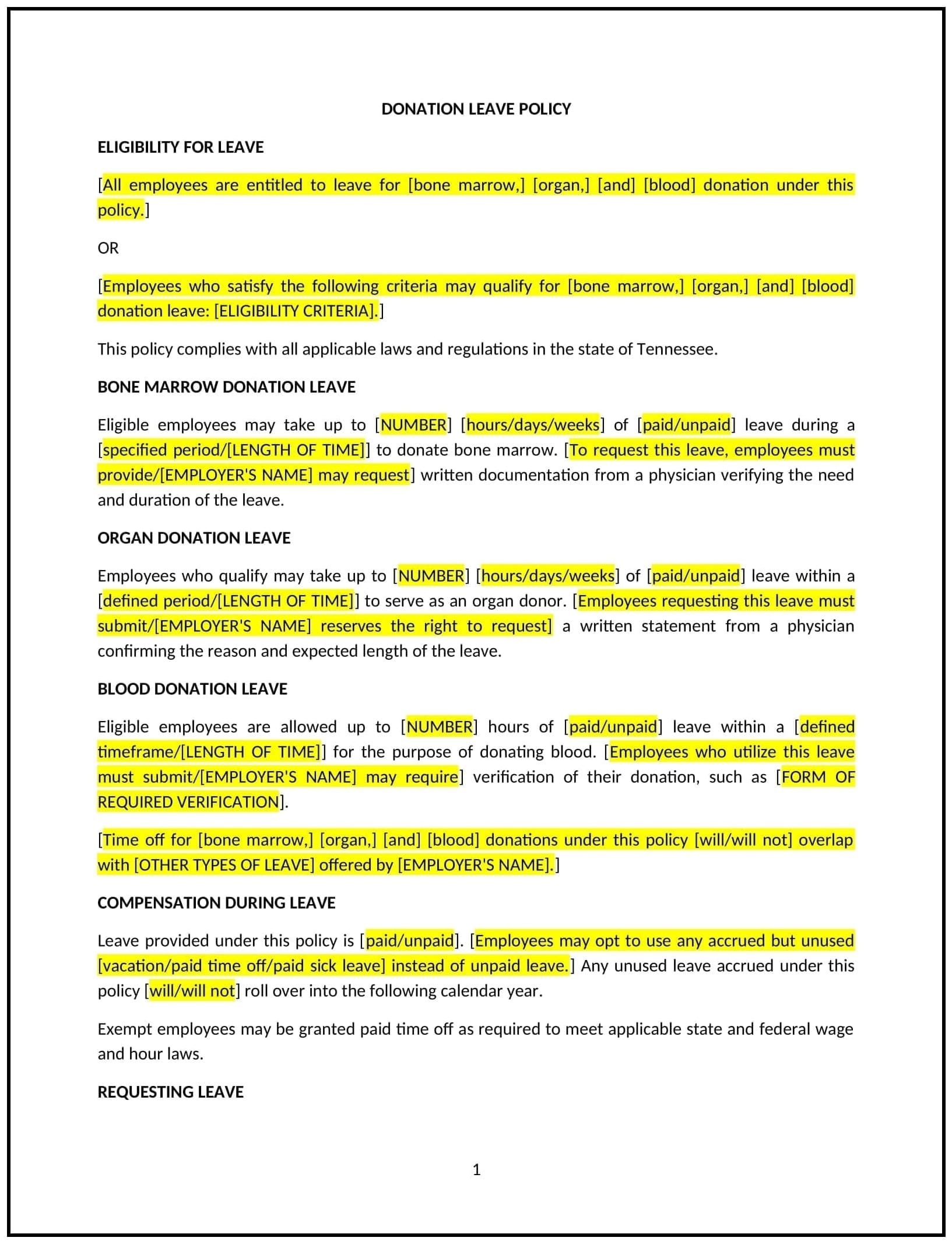Got contracts to review? While you're here for policies, let Cobrief make contract review effortless—start your free review now.

Customize this template for free
Donation leave policy (Tennessee)
This donation leave policy is designed to help Tennessee businesses establish guidelines for employees taking time off to donate blood, organs, or other life-saving resources. It outlines procedures for requesting leave, job protection, and supporting employees during the donation process.
By adopting this policy, businesses can demonstrate social responsibility, support employee well-being, and foster a compassionate workplace culture.
How to use this donation leave policy (Tennessee)
- Define eligible donations: Specify which types of donations qualify for leave, such as blood, organ, or bone marrow donations.
- Set leave duration: Outline the amount of leave provided, such as 1 day for blood donation or up to 30 days for organ donation.
- Establish request procedures: Provide steps for employees to request donation leave, including required documentation.
- Ensure job protection: Guarantee that employees will return to the same or an equivalent position after leave.
- Train managers: Educate supervisors on handling donation leave requests and maintaining workflow.
- Review and update: Assess the policy annually to ensure it aligns with evolving business needs and employee expectations.
Benefits of using this donation leave policy (Tennessee)
This policy offers several advantages for Tennessee businesses:
- Demonstrates social responsibility: Shows a commitment to supporting life-saving donations.
- Enhances employee well-being: Provides employees with time to contribute to meaningful causes.
- Builds trust: Demonstrates that the business values employees’ personal contributions.
- Promotes a positive culture: Fosters a workplace environment of compassion and support.
- Aligns with best practices: Encourages businesses to support community health initiatives.
Tips for using this donation leave policy (Tennessee)
- Communicate the policy: Share the policy with employees and include it in the employee handbook.
- Provide training: Educate managers on handling donation leave requests and maintaining workflow.
- Monitor compliance: Regularly review leave requests to ensure adherence to the policy.
- Address issues promptly: Take corrective action if leave requests are mishandled or denied improperly.
- Update regularly: Assess the policy annually to ensure it aligns with evolving business needs.